What Can The Vocal World Learn From Folk Music?
What Can The Vocal World Learn From Folk Music?
Amy Malkoff (WACA) tells you what the a cappella world needs to learn from the folk world and vice versa.
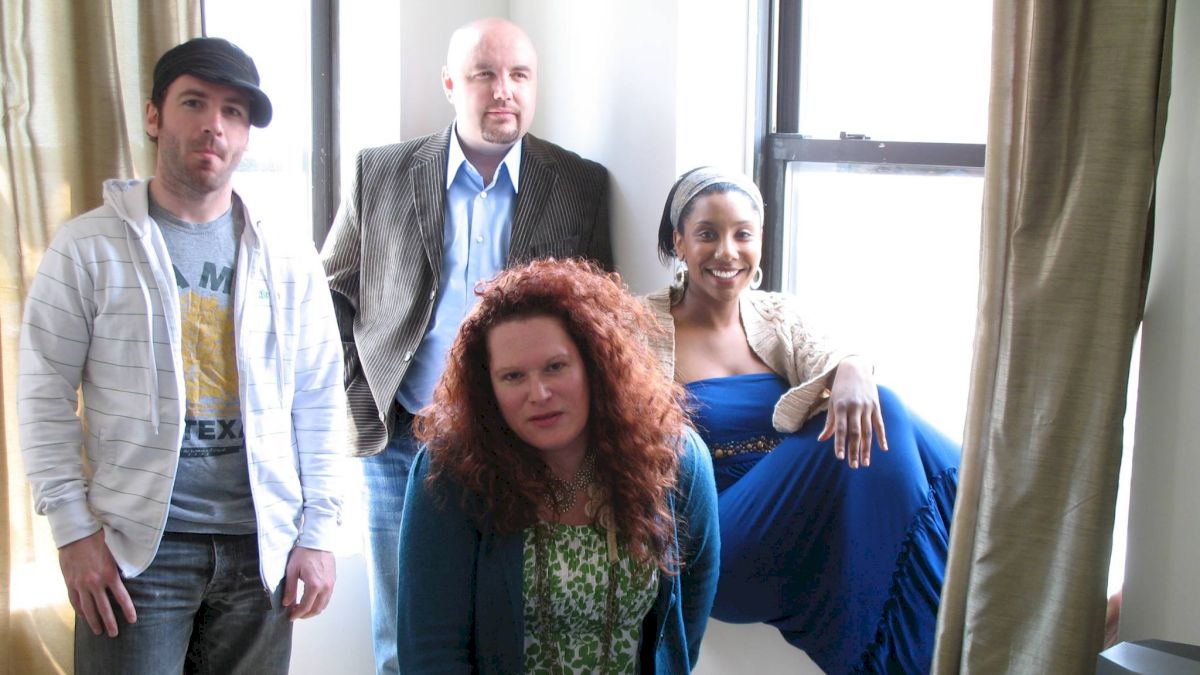
by Amy Malkoff
I've seen some things. I've straddled the folk/acoustic and a cappella worlds for a long time now. I've performed, produced, recorded, judged, taught. And many times I've noticed that what one (instrumentation) lacks, the other has, and vice versa. I've always wished that each could take from the other. So here we are.
A cappella in college yes, but then right after graduation, and in grad school, I became ½ of an acoustic duo (1 guitar, 2 voices), and that lasted for 7 years, y'all. 7 years traversing the acoustic clubs of the country, driving, sometimes through blizzards, to perform for attentive audiences.
Listening rooms. Lots and lots of cutting our teeth at open mics (I mean lots). Recording. Bigger venues with bigger audiences. Festivals.
When that ended, I started my own a cappella group reminiscent of my collegiate group, then another that was more evolved, then that group morphed and sometimes wasn't always a cappella -- I played guitar - , then it became a fully instrumented band with lots of lush harmonies.
I've booked venues and produced concerts and concert series. I've straddled the acoustic/folk and a cappella worlds for a long time now. And I'm often reminded that each world has strengths that the other lacks.
Here is my list of some of those strengths and weaknesses:
You know that an audience wants some real performance in their performance, so you pull liberally from the theatre world to add in movement and choreography, and to craft a set like a piece of theater with a dramatic arc, rather than song-song-song.
It's the magic pixie dust that all performances need to transport an audience. The folk world, born on porches and in small circle gatherings, could use some of this. While I can appreciate the no-frills workman-like approach, I also enjoy the pixie dust.
You understand that getting good at what you do is not just about having sung in high school and/or college, but about slogging it out with your band, doing the low level "starter" gigs where you're definitely not treated like rock stars, sitting patiently through open mics, being the opening act, and doing that repeatedly, until you've earned the move up to headlining gigs.
You know that you need to craft your full set with your band via repetition, and gel as a group. What works, what falls flat in front of an audience, knowing where they laugh and where they don't. Working on your inter-band banter until it's natural and integral to the show. Working as hard on crowd interaction as on how tight your harmonies are.
The folk world is populated by singer-songwriters who are often, if not primarily, singing their own songs. So it's no surprise that they emotionally connect with those songs. But they are also willing to talk (sing) about the hard things, and often to write lyrically complex songs that assume the audience is smart enough to engage and go along for the ride.
Their bare-bones set up is ideal for these kinds of unfiltered emotional connections between musician and song and musician and audience. It's decidedly harder (but not impossible -- see OneVoice, a high school group!) to get to the emotional core of a song with several people on a stage, all with their own experiences.
The work is in getting everyone on the same page, letting a song breathe after its last chord, creating a space where it's ok to be vulnerable, and avoiding trying to "emote" a la what you think a performer is "supposed" to look like. Just do you.
This is probably the topic with the most stark rift. A cappella people know that the visual part of your show is not an opt-out kind of thing (for the most part: I know some groups who could use some styling. call me?).
Why? Because they think like pop stars, and that is a good thing. They want to get on stage and shine, not just musically. So they put effort into looking great, on finding a cohesive look that works for the group and for the individuals in the group.
What's your signature? In contrast, the folk world has always been about wearing whatever you wore during the day on your drive to the gig. Maybe you change your shirt. Maybe. But you rarely change into "performance clothes".
What are performance clothes? Well, my own group did some consulting with Keith Garde, who manages both Aerosmith and Rockapella, and he said, "Dress for the ticket price you'd like to be getting. If you would like people to be paying $50 to see you, dress like the $50 ticket.
Have clothes that are just for performance and vary from your street clothes. Use color. People are visual and your show is visual as well as musical. It's not "vain" or optional (really). It's a part of the performance. It shows respect to the audience, and they are, when it comes down to it, your boss for that gig. Look good for the boss. What, you don't know about style or fashion or what looks good on you? There are people who will help you with that. Find them.
Every note is precise, every chord locked. Because without that precision, the probability of a musical trainwreck skyrockets, yes, but also because that's the beauty of the thing.
Whereas in the folk world, vocals, and especially any vocals added to what might otherwise be a soloist, are often a casual add-on, often sloppy.
Why you gonna do your audience boss like that? No hiding behind your instruments. Make it pretty!
Again, folk gets to the emotional core by choosing or writing songs that work for their medium and are well suited to taking an audience on a journey with you. The careful choice of songs that suit the performer and anticipate what an audience will enjoy.
Emphasis on the craft of songwriting, on what grooves and moves, on strong melodies. Less gimmicky things (like reliance on mashups). And it's not about the style or the genre, but just about the choosing. There's so much great stuff out there (or to be written), and people to hear it. Find it.
As performers, we need to think like audience members. What would we like to see or hear? What kind of performance or performer is most likely to absorb us, make us evangelists for (that act), move us profoundly? What kind of performance makes another performer want to be better, to hit the woodshed, to innovate?
That's the goal. So, take what you want from the above, discard the rest, and make beautiful music. I'll be listening!
--
Don't miss exclusive videos, feature stories, event updates, and more.
Sign up for the FloVoice Newsletter and never miss a beat.
I've seen some things. I've straddled the folk/acoustic and a cappella worlds for a long time now. I've performed, produced, recorded, judged, taught. And many times I've noticed that what one (instrumentation) lacks, the other has, and vice versa. I've always wished that each could take from the other. So here we are.
A cappella in college yes, but then right after graduation, and in grad school, I became ½ of an acoustic duo (1 guitar, 2 voices), and that lasted for 7 years, y'all. 7 years traversing the acoustic clubs of the country, driving, sometimes through blizzards, to perform for attentive audiences.
Listening rooms. Lots and lots of cutting our teeth at open mics (I mean lots). Recording. Bigger venues with bigger audiences. Festivals.
When that ended, I started my own a cappella group reminiscent of my collegiate group, then another that was more evolved, then that group morphed and sometimes wasn't always a cappella -- I played guitar - , then it became a fully instrumented band with lots of lush harmonies.
I've booked venues and produced concerts and concert series. I've straddled the acoustic/folk and a cappella worlds for a long time now. And I'm often reminded that each world has strengths that the other lacks.
Here is my list of some of those strengths and weaknesses:
ON DRAMA AND SPECTACLE
Advantage: Aca-worldYou know that an audience wants some real performance in their performance, so you pull liberally from the theatre world to add in movement and choreography, and to craft a set like a piece of theater with a dramatic arc, rather than song-song-song.
It's the magic pixie dust that all performances need to transport an audience. The folk world, born on porches and in small circle gatherings, could use some of this. While I can appreciate the no-frills workman-like approach, I also enjoy the pixie dust.
UCD Lark Performing "Good Intent" at NACC 2016
ON PAYING YOUR DUES
Advantage: Folk worldYou understand that getting good at what you do is not just about having sung in high school and/or college, but about slogging it out with your band, doing the low level "starter" gigs where you're definitely not treated like rock stars, sitting patiently through open mics, being the opening act, and doing that repeatedly, until you've earned the move up to headlining gigs.
You know that you need to craft your full set with your band via repetition, and gel as a group. What works, what falls flat in front of an audience, knowing where they laugh and where they don't. Working on your inter-band banter until it's natural and integral to the show. Working as hard on crowd interaction as on how tight your harmonies are.
Amy Malkoff & Ray Gonzalez
ON EMOTIONS VS. "EMOTING"
Advantage: Folk worldThe folk world is populated by singer-songwriters who are often, if not primarily, singing their own songs. So it's no surprise that they emotionally connect with those songs. But they are also willing to talk (sing) about the hard things, and often to write lyrically complex songs that assume the audience is smart enough to engage and go along for the ride.
Their bare-bones set up is ideal for these kinds of unfiltered emotional connections between musician and song and musician and audience. It's decidedly harder (but not impossible -- see OneVoice, a high school group!) to get to the emotional core of a song with several people on a stage, all with their own experiences.
The work is in getting everyone on the same page, letting a song breathe after its last chord, creating a space where it's ok to be vulnerable, and avoiding trying to "emote" a la what you think a performer is "supposed" to look like. Just do you.
Ellis Paul Performing "Conversation with a Ghost"
song starts at 3:20ON WORKING THE VISUALS
Advantage: Aca-world, big time.This is probably the topic with the most stark rift. A cappella people know that the visual part of your show is not an opt-out kind of thing (for the most part: I know some groups who could use some styling. call me?).
Why? Because they think like pop stars, and that is a good thing. They want to get on stage and shine, not just musically. So they put effort into looking great, on finding a cohesive look that works for the group and for the individuals in the group.
What's your signature? In contrast, the folk world has always been about wearing whatever you wore during the day on your drive to the gig. Maybe you change your shirt. Maybe. But you rarely change into "performance clothes".
What are performance clothes? Well, my own group did some consulting with Keith Garde, who manages both Aerosmith and Rockapella, and he said, "Dress for the ticket price you'd like to be getting. If you would like people to be paying $50 to see you, dress like the $50 ticket.
Have clothes that are just for performance and vary from your street clothes. Use color. People are visual and your show is visual as well as musical. It's not "vain" or optional (really). It's a part of the performance. It shows respect to the audience, and they are, when it comes down to it, your boss for that gig. Look good for the boss. What, you don't know about style or fashion or what looks good on you? There are people who will help you with that. Find them.
"Beggin and Pleadin" apb Pitch Slapped
ON WORKING THE HARMONIES
Advantage: Aca-world, of course.Every note is precise, every chord locked. Because without that precision, the probability of a musical trainwreck skyrockets, yes, but also because that's the beauty of the thing.
Whereas in the folk world, vocals, and especially any vocals added to what might otherwise be a soloist, are often a casual add-on, often sloppy.
Why you gonna do your audience boss like that? No hiding behind your instruments. Make it pretty!
"America" apb The Swingle Singers
ON MAKING SONG CHOICES
Advantage: Folk worldAgain, folk gets to the emotional core by choosing or writing songs that work for their medium and are well suited to taking an audience on a journey with you. The careful choice of songs that suit the performer and anticipate what an audience will enjoy.
Emphasis on the craft of songwriting, on what grooves and moves, on strong melodies. Less gimmicky things (like reliance on mashups). And it's not about the style or the genre, but just about the choosing. There's so much great stuff out there (or to be written), and people to hear it. Find it.
Alison Krauss & Shawn Colvin Sing "The Boxer"
As performers, we need to think like audience members. What would we like to see or hear? What kind of performance or performer is most likely to absorb us, make us evangelists for (that act), move us profoundly? What kind of performance makes another performer want to be better, to hit the woodshed, to innovate?
That's the goal. So, take what you want from the above, discard the rest, and make beautiful music. I'll be listening!
--
FloVoice's best content, delivered directly to your inbox!
Don't miss exclusive videos, feature stories, event updates, and more.
Sign up for the FloVoice Newsletter and never miss a beat.
Related Content
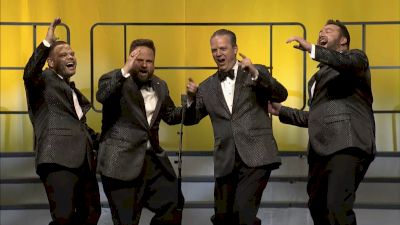 Quorum Tops A Talented Field
Quorum Tops A Talented FieldJul 10, 2022
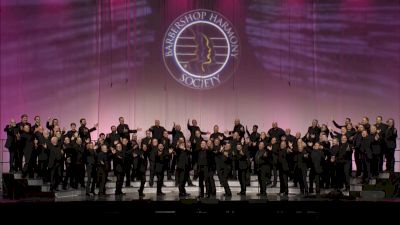 Music City Wins it All
Music City Wins it AllJul 9, 2022
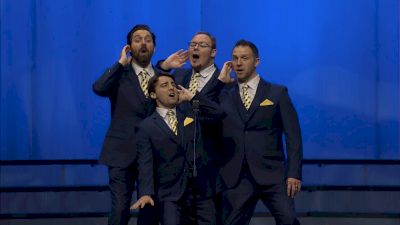 Stage is Set for Quartet Finals
Stage is Set for Quartet FinalsJul 8, 2022
 Clementones Squeeze in a Varsity Win
Clementones Squeeze in a Varsity WinJul 7, 2022
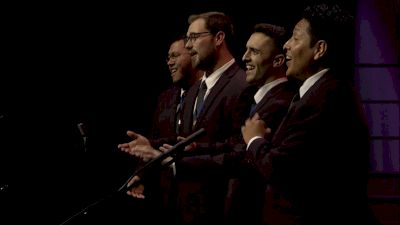 Highlights from NextGen Varsity Contest
Highlights from NextGen Varsity ContestJul 7, 2022
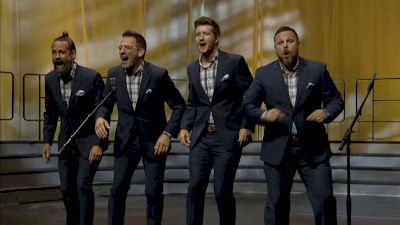 Top 20 Quartets Named at BHS Charlotte
Top 20 Quartets Named at BHS CharlotteJul 6, 2022
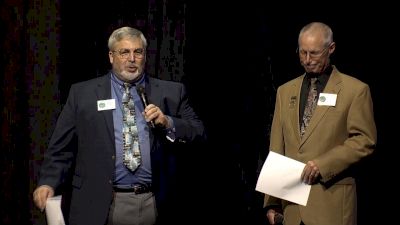 BHS Call Off - Top 20 Quartets
BHS Call Off - Top 20 QuartetsJul 6, 2022
 A Historic Kick Off in Charlotte
A Historic Kick Off in CharlotteJul 6, 2022
 BHS Charlotte - Day 1
BHS Charlotte - Day 1Jul 6, 2022